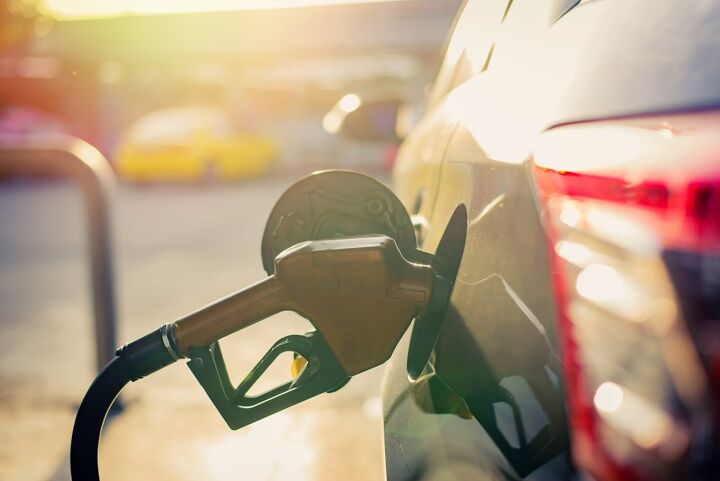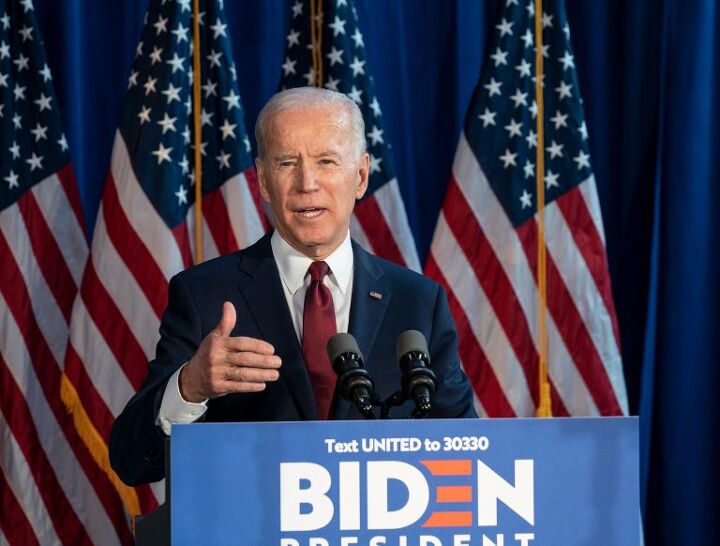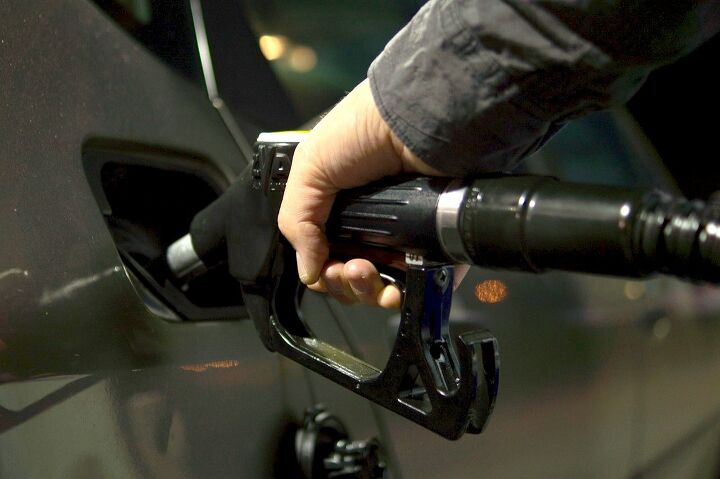#TransportationDepartment
Gas War: Ford Urges Other Automakers to Join the Californian Coalition
The Ford Motor Company is asking automakers to join it in supporting Californian vehicle emissions targets aimed at supplanting the rollback that was supposed to become the national standard. General Motors has already abandoned its support of the Trump rollbacks, which offered concessions to appease environmental groups but ultimately targeted more lax fueling regulation while seeking to eliminate California’s ability to self regulate as a way to curb its influence. But industry leaders are under the impression that a President Biden would attempt to swiftly transmission back to Obama-era regulatory targets or simply adopt the California model that’s been at odds with the national standards established by the Trump administration.
Considering how aggressive the Biden-Harris energy/environmentalism platform is, it certainly seems a plausible scenario and certain automotive executives feel that it would be best to go into 2021 aligned and supportive. The matter is even scheduled to be brought forward during Tuesday’s virtual auto trade association meeting.
Gas War: California Regulators Say Biden Should Embrace State's Emission Plan
While multiple states launch mandatory election recounts and President Trump throws around lawsuits like confetti Joe Biden and the mainstream media are preparing for his ascension from regular old man to Leader of the Free World — though that title doesn’t seem to get much play these days. Biden has already started holding meetings with foreign leaders and experts on how to go about heading the United States. Apparently, there’s even been some progress on how to govern the nation.
On Thursday, California Air Resources Board (CARB) Chairwoman Mary Nichols said the state’s arrangement with major automakers over fuel efficiency requirements would be ideal for the presumed Biden administration — which has promised to implement some of the most ambitious emissions standards the world has ever seen. Nichols also expressed excitement at the possibility of heading the U.S. Environmental Protection Agency (EPA) under a Biden presidency and is reportedly under serious consideration for the position.
Gas War: Biden Selects 'Obama All Stars' for Transportation Department, EPA
With America currently split between people arguing about how seriously the 2020 election needs to be investigated, there hasn’t been much in the news about cars beyond the omnipresent background hiss of manufacturers promoting green vehicles they have yet to build. That leaves us having to belly crawl through journalistic muck in the hopes of finding a morsel of useful information. Fortunately, we located a crumb worth saving in Joe Biden’s transition teams for the Environmental Protection Agency and Transportation Department.
A Biden administration means bringing back Obama all-stars in a concentrated effort to restore that era’s regulatory standards. That entails flipping just about every single initiative launched by President Trump, including the national fuel rollback that’s at the heart of the Gas War. Biden has also said he would reenter the Paris Climate Accords, gradually abandon fossil fuels, and “establish ambitious fuel economy standards” surpassing anything the nation has seen before.
Should Police Have the Ability to Track and Disable Self-driving Vehicles?
Autonomous vehicles have created an endless series of unanswerable questions. As the technology continues to advance, decisions on how best to implement it have not. We’ve yet to discern who is liable in the event of an accident, how insurance rules would change, if they can coexist effectively with traditional automobiles, how they will impact vehicle ownership in the long term, and the infrastructure necessary to ensure they’ll function as intended.
There’s also a myriad of security concerns involving everything from the very real prospect of vehicle hacking to automakers selling the personal information of drivers. Both of those topics are about to come to a head as automakers continue shifting toward connected vehicles.
In March, the U.S. Transportation Department met with auto industry leaders, consumer advocacy groups, labor unions, and others in an attempt to navigate the minefield that is autonomous integration. The department previously hosted similar roundtable discussions in December after releasing the new federal guidance for automated driving systems, called “ A Vision for Safety 2.0.” That guidance freed up automakers and tech firms to test self-driving vehicles with fewer regulatory hurdles to cope with.
However, the December report seemed to focus mainly on how little everyone outside the industry understands the new technology.
As California Fumes, Automakers Head to Washington to Talk Emissions
A slew of automakers are scheduled for a Thursday meeting with the heads of the Environmental Protection Agency and U.S. Department of Transportation to go over existing Obama-era efficiency rules. Transportation Secretary Elaine Chao and EPA Administrator Scott Pruitt will both be on hand to discuss — and likely reassure — manufacturers on the future of the guidelines.
In March, President Donald Trump ordered an extensive review of U.S. light vehicle fuel-efficiency standards for the 2022-2025 time frame, despite the Obama administration locking them in well ahead of the midterm review’s April 2018 deadline. The decision was rushed to maintain the administration’s climate change policy and avoid any tampering from incoming Trump appointees. While there remains much to be done before the standing emission limits can be rolled back, wheels are now in motion.
California Maintains Obama-era Emissions Rules in Affront to Trump's EPA
California has green-lit light-vehicle pollution targets that the Trump administration has placed under review. As expected, t he Golden State is going to continue playing hardball over Environmental Protection Agency regulations.
Already critical of the automotive industry for asking the president to reconsider federal guidelines through 2025, the California Air Resources Board hinted that it wouldn’t stray from the emission targets set by the Obama administration in 2012. On Friday, CARB finalized its state emissions rules while setting an updated ordinance on zero-emission vehicles. “We’re going to press on,” said Mary Nichols, head of the board, during last week’s press conference.
How Stoned is Too Stoned to Drive? The Feds Want To Know
Puff, puff, pass that bill. Federal authorities want to know how stoned is too stoned for drivers, according to a provision in the recently signed Federal Highways Bill.
The new law directs U.S. Department of Transportation Secretary Anthony Foxx to study the effects of marijuana on drivers and present those findings to Congress by the end of 2016.
As more states legalize marijuana — Oregon and Alaska joined Washington and Colorado with legal pot, and 12 states have decriminalized possession — Congress asked the department to determine how to train police to spot stoned drivers and how to test them.
According to a Gallup Poll this year, 47 percent of American surveyed said they thought marijuana would make the roads less safe in states with legalized cannabis.





















Recent Comments